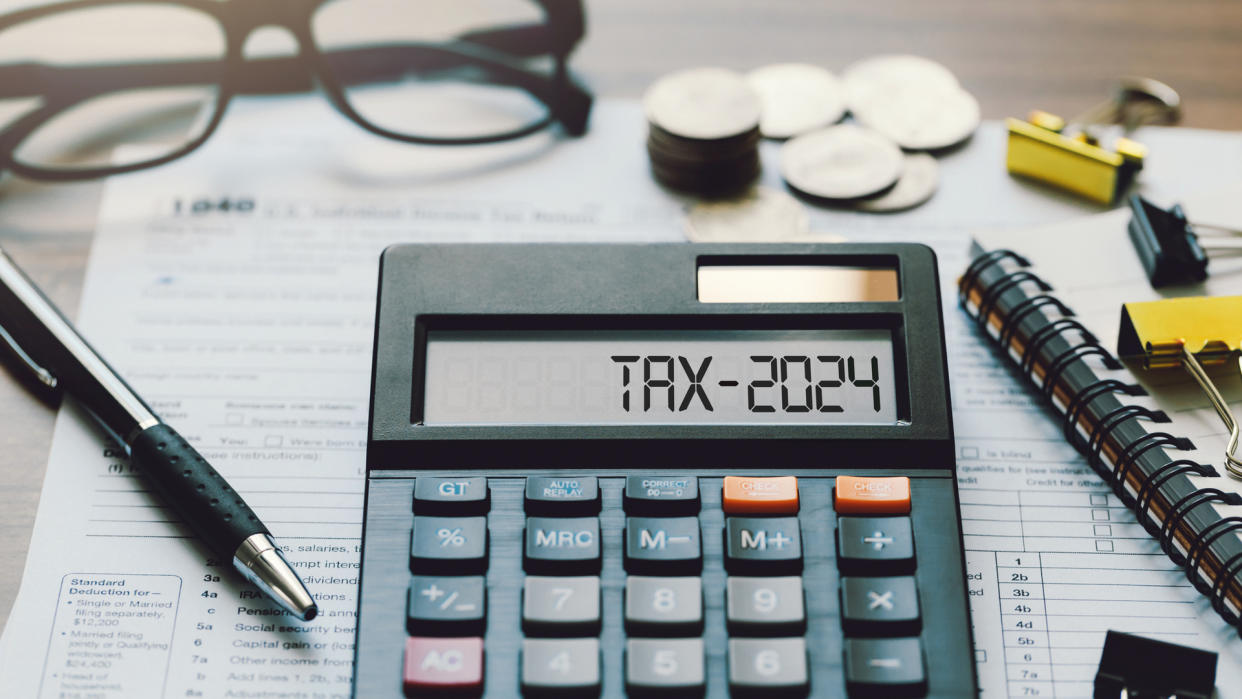Low-Income Tax Filers Are Less Likely To Receive a Refund This Year: Here’s Why

Tax filers in the lowest income bracket saw “a slowing in the decline of refunds compared to tax years 2021 and 2022, evidence that the elimination of COVID-related tax credits had an impact on refunds,” per Intuit TurboTax.
Check Out: A Look at Tax Filing Options and Costs
Read Next: 6 Genius Things All Wealthy People Do With Their Money
According to the TurboTax April Tax Trends Report, 57% of single tax filers from the lowest income category received a refund. This is only slightly different from tax year 2022 at 60.2%, but a significant change from 74.8% in tax year 2021.
Refund Trends Seem To Be Stabilizing For Those in Lower Tax Brackets
TurboTax pointed out that refund trends are leveling out among tax filers in the lowest tax brackets. The report explained that this can be explained by the time period where significant COVID relief provisions regressed to pre-pandemic tax benefits, particularly the child and dependent care credit and the child tax credit.
On a positive note, TurboTax said the rate of decline among lower-income filers is softening. The IRS’s latest tax filing statistics also show that the average refund amount is up for tax year 2023 as of March 22, 2024.
There’s still time to file if you have unclaimed refunds. According to the IRS, there are $1 billion in unclaimed refunds for tax year 2020 for hundreds of thousands of people. The average median refund is $932 for 2020. A OnePoll survey in partnership with TurboTax found that 68% of Gen Z tax filers “were unsure or didn’t know that they could receive a tax refund while making under the IRS’ income requirement.”
Learn More: Trump-Era Tax Cuts Are Expiring — How Changes Will Impact Retirees
Taxpayers and the Typical 3-Year Tax Filing Window
Under federal law, taxpayers typically have a three-year window to file and claim their tax refunds, such as the child tax credit or the recovery rebate credit. If you don’t file within that time, the money becomes the property of the U.S. Treasury, the IRS said. The deadline to file these returns is May 17, 2024. You could even have a refund owed to you from the 2021 or 2022 tax year.
“A good percentage of those who are typically not required to file, for instance, this may be a person who typically receive just Social Security, and they’re not used to following a tax return,” former IRS criminal investigator and certified public accountant Kemberley Washington explained to ABC7 Chicago. “They may be unaware that this money is available to them, and that they would need to file this tax return.”
More From GOBankingRates
How Much Does the Average Middle-Class Person Have in Savings?
5 Reasons You Should Consider an Annuity For Your Retirement Savings
This article originally appeared on GOBankingRates.com: Low-Income Tax Filers Are Less Likely To Receive a Refund This Year: Here’s Why
